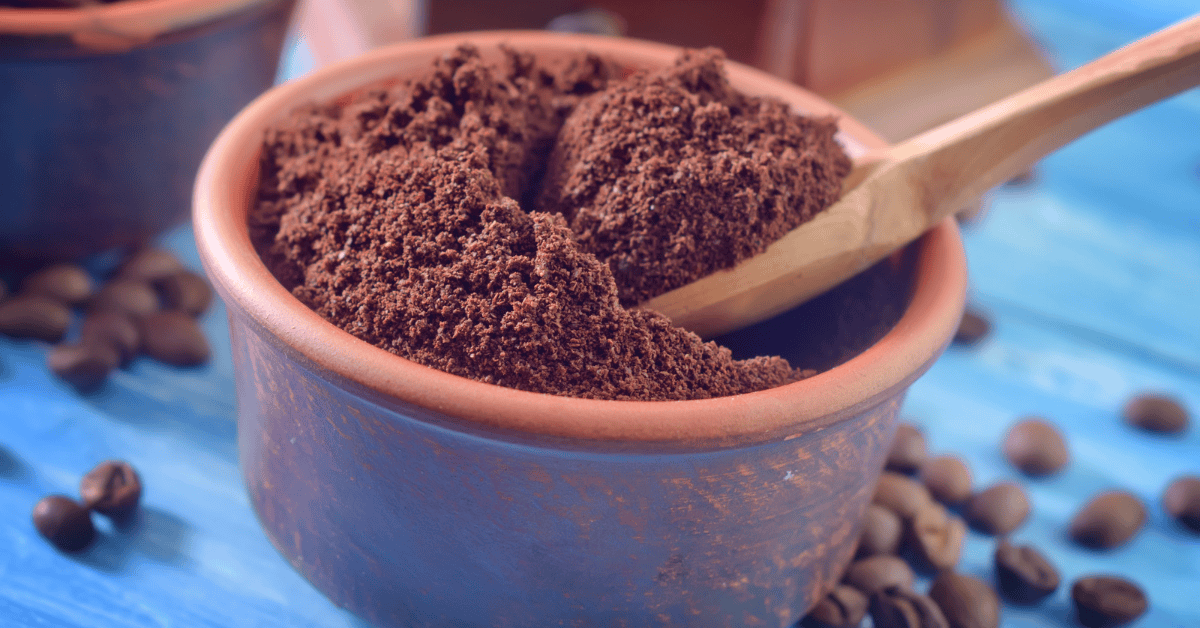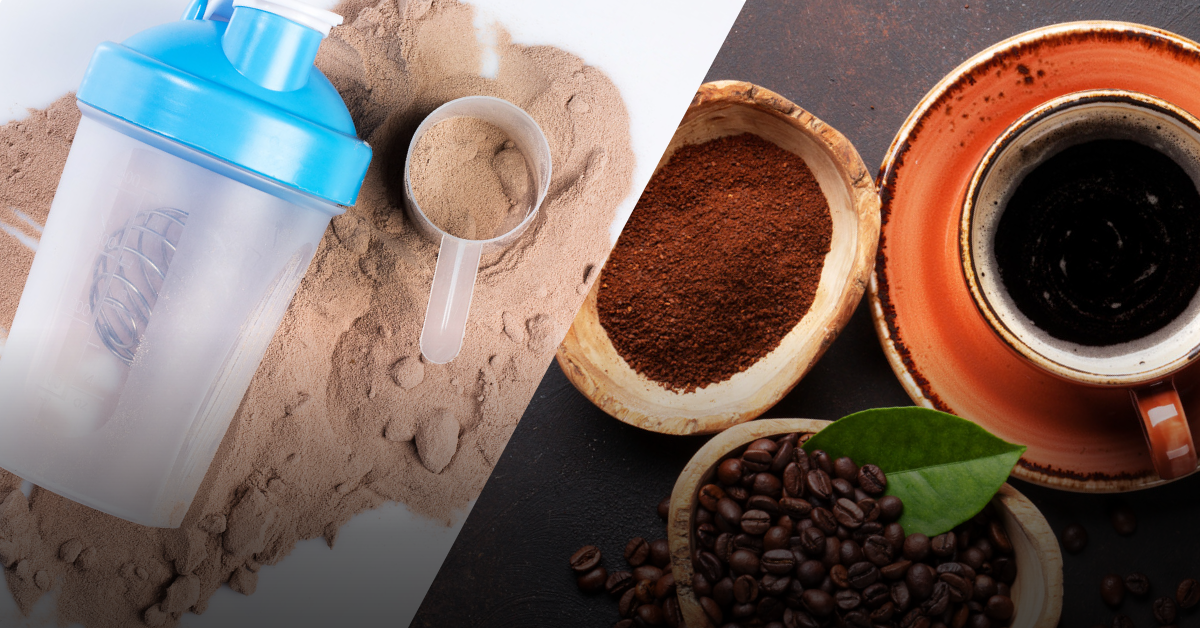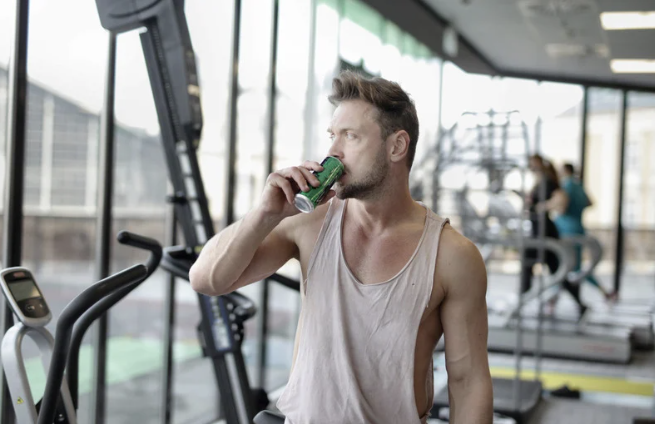
Ever wondered about the caffeine content in your pre-workout supplement versus your morning cup of joe?
Well, you're in the right place.
Understanding the caffeine content in both can help you make informed decisions about your workout routine and overall health.
Let's dive in!
Pre-workout supplements typically contain between 150-300 mg of caffeine per serving.
In contrast, an average cup of coffee has about 95 mg of caffeine.

Pre-workout supplements are designed to help you get the most out of your workout session.
They can boost energy, improve endurance, and increase focus.
And yes, caffeine often plays a key role in these supplements.
But how much caffeine is in a pre-workout supplement?
Well, it varies.
Some pre-workout supplements can pack 150 to 300 milligrams of caffeine per serving.
That's a hefty dose compared to the average cup of coffee.
But remember, not all pre-workouts are created equal.
Some might have less caffeine; some might have more.
And the effects can vary based on your body weight, tolerance to caffeine, and the intensity of your workout.
You might also like : Nootropic Coffee For Weight Loss: Does It Work?
Now, let's talk about coffee.
Ah, the smell of a fresh brew in the morning.
But besides its comforting aroma and taste, coffee is most loved for its caffeine content.
An average cup of coffee contains about 95 milligrams of caffeine.
But just like with pre-workout supplements, this can vary.
A lighter roast coffee can have more caffeine than a darker roast.
And the method of brewing can also affect the caffeine content.
And there's a whole world of different types of coffee out there.
From your traditional cup of Joe to hybrid coffees infused with nootropics and mushrooms, there's something for everyone.
These hybrid coffees aim to enhance focus and energy through multiple pathways, not just caffeine.
For example, some coffees are now infused with nootropics like L-theanine, which is known to promote relaxation without drowsiness.
Others might include adaptogenic mushrooms like Lion's Mane or Cordyceps, which are believed to support brain health and energy levels, respectively.
But despite these additions, the caffeine content in coffee remains relatively consistent.
An average cup of coffee - whether it's a traditional brew or a nootropic-infused blend - contains about 95mg of caffeine.
So, pre-workout supplements vs coffee - which one packs more of a punch when it comes to caffeine?
Well, on average, pre-workout supplements tend to contain more caffeine than coffee.
But it's not just about the amount of caffeine.
It's also about how it affects your workout.
Caffeine in pre-workout supplements is often combined with other ingredients like amino acids, creatine, and B vitamins, which are all designed to enhance your workout performance.
On the other hand, coffee is a more natural source of caffeine and can offer other health benefits, thanks to its antioxidants.
But remember, too much of anything can lead to side effects, like jitters, heart palpitations, and disrupted sleep.
So, it's important to consider your own caffeine tolerance and consult with a healthcare professional if you have any concerns.
Learn more: Is Coffee Before a Workout Recommended?

Pre-workout supplements are more than just caffeine.
They're a cocktail of ingredients designed to supercharge your workout.
So, what's typically in a pre-workout supplement?
Well, here are some common ingredients:
Remember, the exact ingredients and their amounts can vary between different brands and products.
Always check the label to know what you're getting.
Coffee is a bit simpler.
The main ingredient in coffee?
Coffee beans.
But that doesn't mean coffee is just coffee.
Different types of coffee beans, the roasting process, and the brewing method can all affect the final product.
And then there are hybrid coffees.
These coffees are infused with additional ingredients like nootropics and mushrooms to enhance their effects.
But at its core, a cup of coffee is primarily water, coffee beans, and, of course, caffeine.
Pre-workout supplements, while beneficial for enhancing performance, are not without their potential side effects.
These side effects can range from mild to severe, depending on the individual and the specific supplement used.
A study published in the Journal of the International Society of Sports Nutrition examined the acute effects of multi-ingredient pre-workout supplement (MIPS) ingestion on resting energy expenditure and exercise performance in recreationally active females.
The study found that while MIPS can increase resting energy expenditure, they can also cause side effects such as increased heart rate and blood pressure.
These side effects can be concerning, especially for individuals with pre-existing heart conditions. [1]
Another study published in the same journal looked at the effects of 28 days of heavy resistance training while ingesting the pre- and post-workout supplements, NO-Shotgun® and NO-Synthesize®.
The study found that while these supplements can improve body composition and muscle strength, they can also cause side effects such as gastrointestinal discomfort and temporary increases in blood pressure.
These side effects, while temporary, can be uncomfortable and potentially harmful in the long term. [2]
A study published in the journal Nutrients examined the short-term effects of a ready-to-drink pre-workout beverage on exercise performance and recovery.
The study found that while this beverage can improve exercise performance and recovery, it can also cause side effects such as increased heart rate and blood pressure, as well as gastrointestinal discomfort.
These side effects can be concerning, especially for individuals who consume these beverages regularly. [3]

Coffee, while a popular and widely consumed beverage, is not without its potential side effects.
These side effects can range from mild to severe, depending on the individual and the amount of coffee consumed.
One of the most common side effects of coffee consumption is an increase in heart rate and blood pressure.
This is due to the caffeine content in coffee, which can stimulate the heart and cause it to beat faster.
While this effect is usually temporary, it can be concerning for individuals with pre-existing heart conditions.
Coffee can also cause gastrointestinal discomfort, including symptoms such as stomach upset, acid reflux, and diarrhea.
This is due to the acidic nature of coffee, which can irritate the stomach lining.
Another common side effect of coffee consumption is insomnia and restlessness.
This is due to the caffeine content in coffee, which can interfere with sleep patterns and cause restlessness.
Both pre-workout supplements and coffee have their potential side effects.
Here’s what to takeaway from all this:
So while most side effects are usually temporary and mild, they can be concerning for certain individuals, especially those with pre-existing health conditions.
Therefore, it's important to consume these products responsibly and be aware of their potential side effects.
The answer to this question isn't black and white.
It really depends on your individual needs and goals.
Pre-workout supplements are designed specifically for workouts.
They contain ingredients like beta-alanine, creatine, and citrulline, which can enhance performance, increase strength, and aid in recovery.
If you're looking for a serious boost in your workout performance, a pre-workout supplement might be the way to go.
On the other hand, coffee is a more natural source of caffeine.
It can provide a decent energy boost and has other health benefits thanks to its antioxidants.
If you're looking for a simple, natural way to enhance your workout, a cup of coffee might be all you need.
But remember, everyone is different.
What works for one person might not work for another.
Is it safe to mix pre-workout with coffee?
Mixing pre-workout with coffee is not typically recommended as both contain caffeine. Too much caffeine can lead to side effects like jitters, insomnia, and heart palpitations.
Can I take a pre-workout if I'm sensitive to caffeine?
There are caffeine-free pre-workout supplements available for those who are sensitive to caffeine. Always check the label for ingredients before purchasing.
How long before my workout should I drink coffee?
Consuming caffeine about 30-60 minutes before exercise is generally recommended for maximum benefits.
Can I use coffee as a pre-workout?
Many people use coffee as a natural pre-workout due to its caffeine content. However, it may not provide all the additional benefits of a pre-workout supplement.
Can I drink coffee after taking pre-workout?
It's best to avoid consuming additional caffeine after taking a pre-workout supplement to avoid consuming too much caffeine.
How much caffeine is in a cup of coffee vs a pre-workout supplement?
On average, a cup of coffee contains about 95 mg of caffeine, while a pre-workout supplement can contain anywhere from 150 to 300 mg per serving.
Can I build a tolerance to caffeine in pre-workout supplements?
Yes, regular caffeine use can lead to tolerance, meaning you may need to consume more to achieve the same effects.
Are there any side effects of consuming too much caffeine?
Yes, consuming too much caffeine can lead to side effects like restlessness, insomnia, heart palpitations, and digestive problems. In extreme cases, it can also lead to caffeine toxicity.
Can I replace my pre-workout supplement with decaffeinated coffee?
Due to the lack of caffeine, decaffeinated coffee won't provide the same energy boost as regular coffee or a pre-workout supplement.
How can I reduce my caffeine intake?
You can reduce your caffeine intake by gradually decreasing the amount of caffeine you consume each day, choosing decaffeinated versions of beverages, or switching to caffeine-free alternatives.
When it comes to caffeine content, pre-workout supplements generally contain more caffeine, ranging from 150-300mg per serving.
On the other hand, a cup of coffee typically contains about 95mg of caffeine.
However, the choice between the two often depends on individual preferences, tolerance to caffeine, and specific fitness goals.
Useful Links
 About FitFrek
About FitFrekFitFrek operates as an independent platform, offering comprehensive workouts, programs, routines, guides, and unbiased reviews to accelerate your progress. We pride ourselves on our honesty, delivering straightforward and candid insights. FitFrek does not offer medical advice, diagnosis, or treatment services.